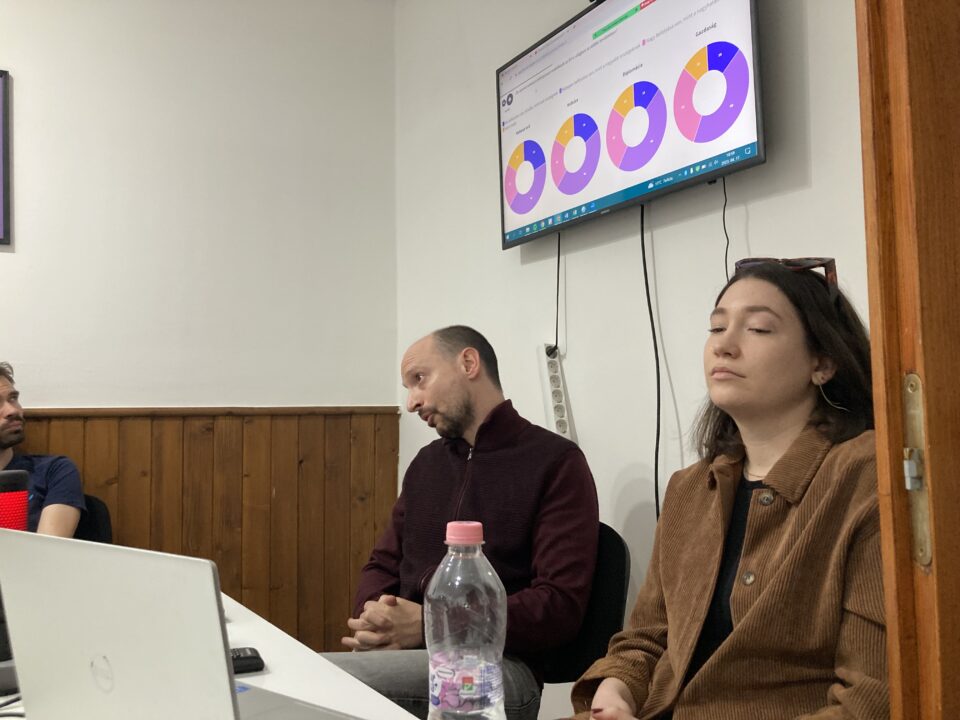Public presentations of the first waves of citizens´ consultations
In February 2023 all project countries held the first round of citizens´ consultations on the topics of migration and climate. The consultations were carried out in the form of in-person individual interviews with citizens in the 4 countries, and with additional online participants. In order to gather the feedback from the citizens, we prepared a set of questions on the topics of EU, climate and migration, which the participants on both the in-person and online interviews answered. During the in-person interviews there was additional time dedicated to the feedback and questions of the citizens – which varied from input to the topics, the format to the questions on the project and its goals as a whole.
The results of the consultations form a basis for one part of our research and are being used in the further activities of the RevivEU project. You can read more about the results and the consultations in the article dedicated to it in the Research section. One of these activities were public presentations of the first results for various partners, stakeholders, media and the general public, taking place in each of the countries. Find out more about those below.
Slovakia
Bratislava Policy Institute presented the first findings of the Citizens´ consultations on Migration and Climate in Slovakia, on 20th of March 2023, during an event titled “When one world is not enough”. BPI´s Michal Vašečka was joined by Andrej Bán, reporter of the prestigious Slovak Denník N magazine, to discuss the results of the citizens´ consultation during a discussion open to general public, preceded by a presentation for various Slovak journalists.
The results show that Slovaks are the most sceptical nation in the EU, showing very low levels of trust in institutional and interpersonal terms. People suffer from a perception of identity threat, feeling of injustice, and growing pessimism. The country is, in their view, heading in the wrong direction, with the war in Ukraine and its consequences contributing to the problem. Dissatisfaction with the performance of institutions is consequently reflected in an increased tendency towards authoritarianism.
The recording of the discussion is also available online, in Slovak language:
Poland
The results of the citizens´ consultations in Poland were presented on 3.4. in a popular social hub space in the city center of Warsaw. The data was presented by Milosz Hodun, president of Projekt: Polska and one of the coordinators of the RevivEU project, to a mix of representatives of Warsaw-based think-tanks, political foundations, universities and media outlets.
The event was composed of a presentation and a discussion. The former started with the introduction to the RevivEU project itself and the presentation of a selection of data from the first public consultation, in particular data on the attitude of Polish people regarding the European Union, climate policies, and refugee policies. After the presentation, a Q&A session started, and it quickly evolved into a vivid debate involving all participants. The data presented was evaluated by the participants as unique and useful. According to the majority of participants, the most interesting data was about the new attitudes of Polish people regarding migration, in the context of migration from Ukraine after February 24, 2022, and raising support for the far-right party, in the context of the 2023 general elections.
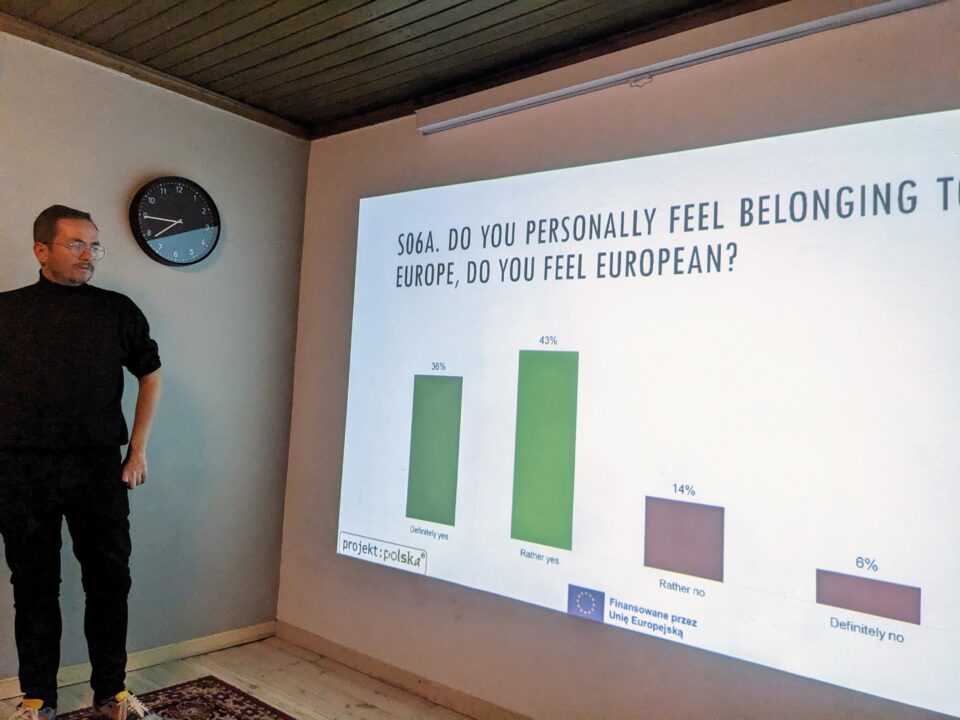
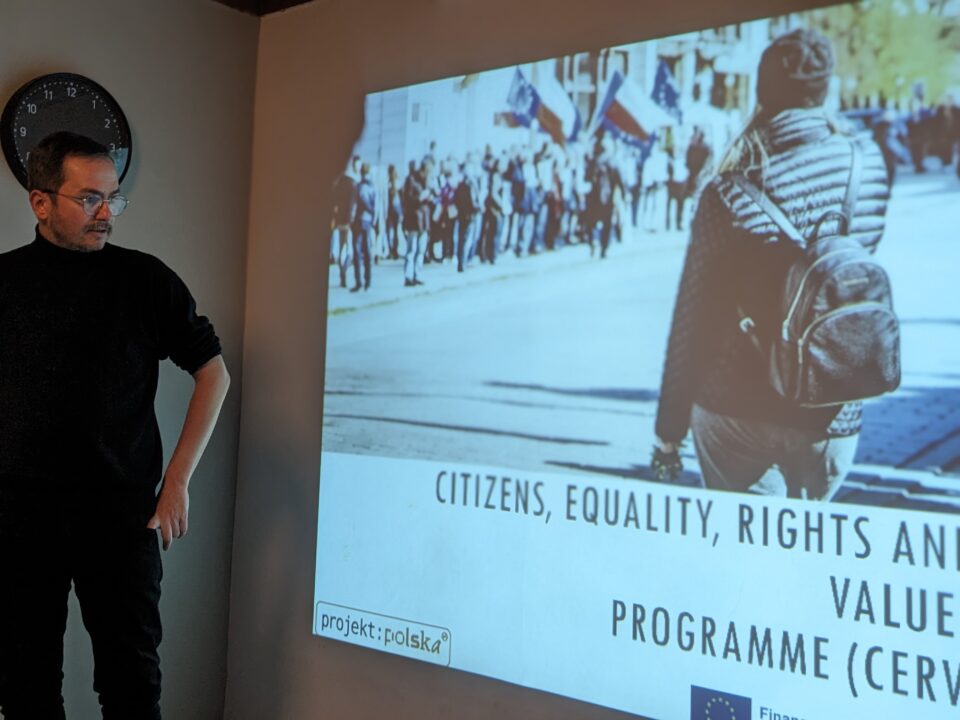
Czechia
The first results about the attitudes of the Czechs towards migration, climate and the EU in general, surveyed during the first wave of RevivEU citizens´ consultations, was presented during a public event on 13.4. in a venue in the heart of old Prague. The results were presented by Jaromír Mazák, Director of Research at STEM Institute for Empirical Research, and by Vít Havelka, senior researcher at EUROPEUM.
Most of the discussion was dedicated to the general attitudes towards the EU and the fact that the Czechs, despite the often common narratives in media, are generally pro-European. The participants also tried their skills in the EU-knowledge quiz and saw that they ranked among the best groups of the respondents´ results. Much of the discussion was also dedicated to the topic of migration and the fact that the Czechs seem to be open only to a few culturally-close groups of migrants. The support for Ukrainian refugees, and Ukraine itself in its war efforts against Russia, were analysed and discussed. A few of the participants were also interested in the methodology and further correlations from other consultations and research.
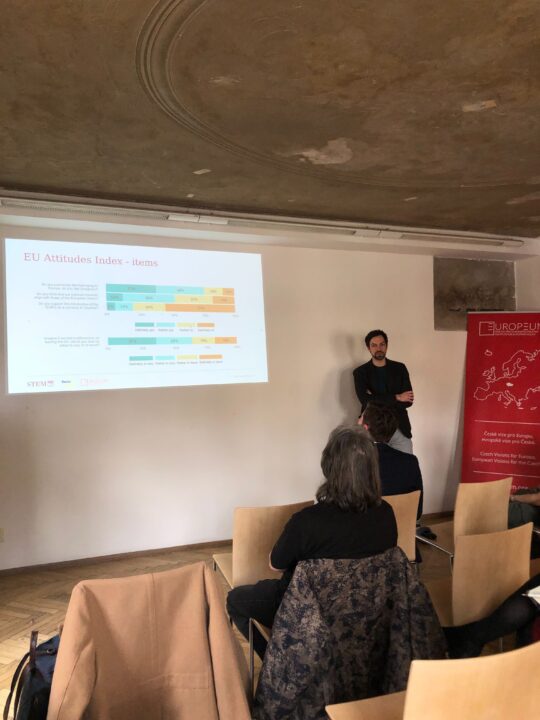
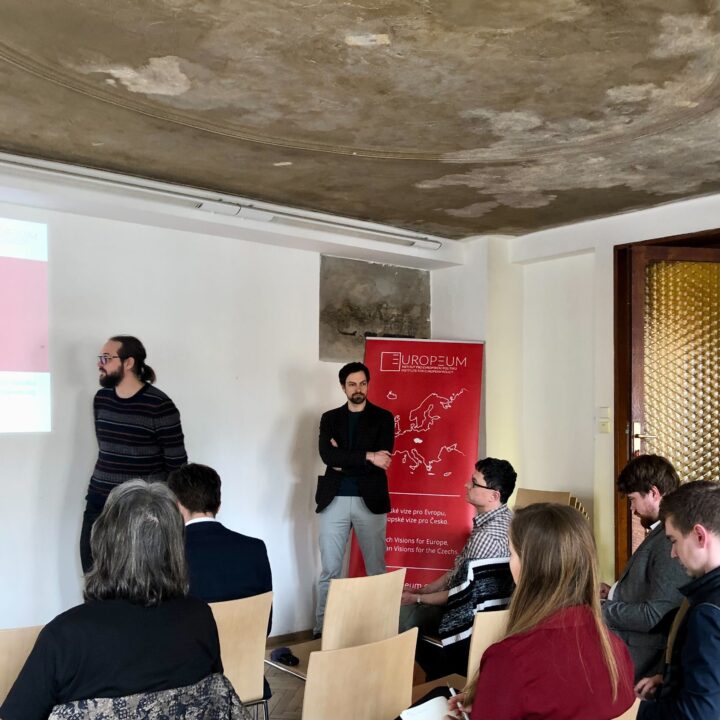
Hungary
The results of the consultations in Hungary were presented during a public presentation on 17.4. The discussion was structured around the questions stemming from the public consultations, mainly How is the EU membership perceived among Hungarians beyond the “stay or leave” dilemma? What are the areas where Hungarians perceive the EU to have too much power and what are the areas where they demand further integration? What do people think about migration after years of full-speed state propaganda against migration? To what extent is the climate crisis taken seriously by people in a political environment where there is barely any discussion about such an urgent issue (and to the extent there is, it is almost always in the context of energy security)?
Thanks to some interesting or rather unexpected findings of the consultations, a dynamic and active discussion took place among participants and presenters. After the presentation and the discussion, the participants were also given the opportunity to ask further questions and to debate the topics.
